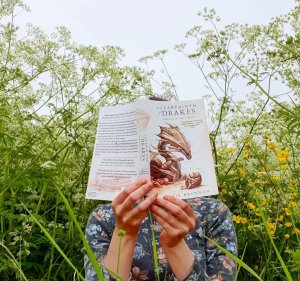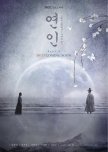A review of both part 1 and 2
What both stunned and impressed me the most about the kdrama My Dearest, right at the very start, was how focused it was on the ordinary people and how they deal with war. And what the war does to them. It makes it less of a war epic and more of a human tale of self-preservation and hope at a trying time. which I found to be quite a fresh approach to this kind of historical drama, although many will no doubt find it rather slow and dry in its execution and style.
The story is ruthless in its realism and harshness with how it seems to paint the world. The narrative is very willing to comment on several aspects within society that it tells it’s tale, the nobility and their uselessness, the lack of care that a certain position within society seems to push into you for the people that live around them, as well as society’s attitude towards women in wartimes and just their position in society both outside of that as well. The way it uses these elements to shape itself, the details it shares throughout the story is very tangible, interesting but also poignant. It is incredibly well thought out and effective within the narrative to stir up further emotions both with the characters and the viewers.
These are not the heroes that poems are sung about, but seem to be more everyday heroes of the common folk. Most of their influence is not great within the grand scheme of things, but it is the people who knew them who will always remember them with kindness and love. They are the ones who will tell the stories about them until they disappear from human memory and are forgotten.
At some point, despite their intelligence and strength, as the war and the hardships seem to tighten more and more around them, the characters seem to wear down a bit. But they never lose who they are, their will to fight but how they go about fighting, how they deal with situations changes a little. All that happens very slowly and works very realistically within the story. It’s a really well-handled look at character, as well as how normal people deal with such situations.
The characters do feel sharp and manage to be both a fresh take on the traditional characters that we get in a Korean historical dramas, but at the same time they have quite a bit of the characteristics that we are used to seeing; Jang-hyun may come across as smug and aloof, and Gil-chae may come across as snobbish and somewhat self-interested. But there’s a lot more to them and their flaws are very presant within the story. Overall there are plenty of multi-layered characters that make My Dearest a rather worthwhile and heart-wrenching watch. Everyone has something to say in their own way and all have some point to emphasize within the story. The story touches your heart from beginning to end if people just allow themselves to enter this cruel, realistic world with these characters as a guiding light.
The plot itself goes through its ups and downs, and it does hit a bit of a lull within the second half where the story tends to repeat itself quite often. Characters almost miss each other a few times over the course of few episodes in order to create tension and longing within the viewers, and since the story is already slow by nature it might make some people really struggle. It makes it seem like the story has lost steam and doesn’t really pick up fully until right near the end. But if the characters manage to grab you and make you completely fall for them in the first half of the story, it’s perfectly tolerable.
The story never seems to fall into being too epic or too grandiose in its approach to the narrative, as some costume dramas tend to do to make their heroes seem bigger. Much rather My Dearest seems so focused on being realistic and grounded in reality like it has a bit of an obsession with the human spirit and the lengths to which people will go to survive. It run through the very heart of the series. And the love story, which is really successful on its own, reflects that. It’s very slow and down to earth and it’s quite unusual for a kdrama in lots of ways.
The story takes its time, sometimes excessively so, and repeats itself a bit too often, but even if it takes the story a good while it manages to underline every point that the drama set out to make really well. The story always seemed to know what it wanted to say. And the humanity that this series carries with it and manages to reflect within the narrative does make you cry many times. It’s gorgeous, it’s heartwarming and filled with hope for brighter days that is always enveloped by a little bit of sadness.
The story is ruthless in its realism and harshness with how it seems to paint the world. The narrative is very willing to comment on several aspects within society that it tells it’s tale, the nobility and their uselessness, the lack of care that a certain position within society seems to push into you for the people that live around them, as well as society’s attitude towards women in wartimes and just their position in society both outside of that as well. The way it uses these elements to shape itself, the details it shares throughout the story is very tangible, interesting but also poignant. It is incredibly well thought out and effective within the narrative to stir up further emotions both with the characters and the viewers.
These are not the heroes that poems are sung about, but seem to be more everyday heroes of the common folk. Most of their influence is not great within the grand scheme of things, but it is the people who knew them who will always remember them with kindness and love. They are the ones who will tell the stories about them until they disappear from human memory and are forgotten.
At some point, despite their intelligence and strength, as the war and the hardships seem to tighten more and more around them, the characters seem to wear down a bit. But they never lose who they are, their will to fight but how they go about fighting, how they deal with situations changes a little. All that happens very slowly and works very realistically within the story. It’s a really well-handled look at character, as well as how normal people deal with such situations.
The characters do feel sharp and manage to be both a fresh take on the traditional characters that we get in a Korean historical dramas, but at the same time they have quite a bit of the characteristics that we are used to seeing; Jang-hyun may come across as smug and aloof, and Gil-chae may come across as snobbish and somewhat self-interested. But there’s a lot more to them and their flaws are very presant within the story. Overall there are plenty of multi-layered characters that make My Dearest a rather worthwhile and heart-wrenching watch. Everyone has something to say in their own way and all have some point to emphasize within the story. The story touches your heart from beginning to end if people just allow themselves to enter this cruel, realistic world with these characters as a guiding light.
The plot itself goes through its ups and downs, and it does hit a bit of a lull within the second half where the story tends to repeat itself quite often. Characters almost miss each other a few times over the course of few episodes in order to create tension and longing within the viewers, and since the story is already slow by nature it might make some people really struggle. It makes it seem like the story has lost steam and doesn’t really pick up fully until right near the end. But if the characters manage to grab you and make you completely fall for them in the first half of the story, it’s perfectly tolerable.
The story never seems to fall into being too epic or too grandiose in its approach to the narrative, as some costume dramas tend to do to make their heroes seem bigger. Much rather My Dearest seems so focused on being realistic and grounded in reality like it has a bit of an obsession with the human spirit and the lengths to which people will go to survive. It run through the very heart of the series. And the love story, which is really successful on its own, reflects that. It’s very slow and down to earth and it’s quite unusual for a kdrama in lots of ways.
The story takes its time, sometimes excessively so, and repeats itself a bit too often, but even if it takes the story a good while it manages to underline every point that the drama set out to make really well. The story always seemed to know what it wanted to say. And the humanity that this series carries with it and manages to reflect within the narrative does make you cry many times. It’s gorgeous, it’s heartwarming and filled with hope for brighter days that is always enveloped by a little bit of sadness.
Cet avis était-il utile?








